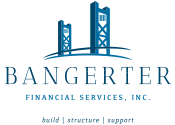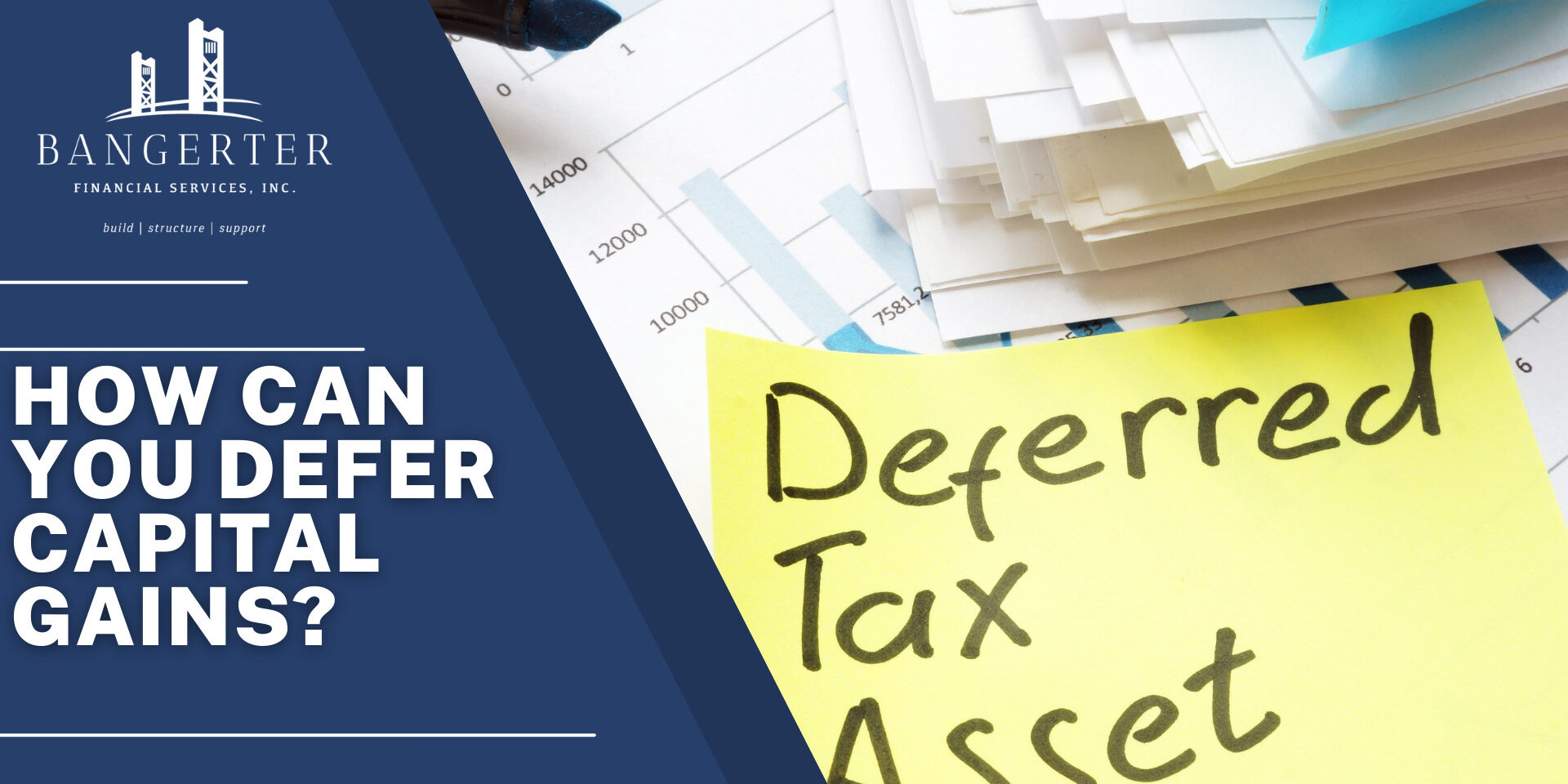There are several ways to potentially defer capital gains taxes:
- Use a 1031 exchange: A 1031 exchange allows an investor to sell an investment property and reinvest the proceeds in a like-kind property without recognizing capital gains on the sale. To qualify for a 1031 exchange, the properties must meet certain criteria, including being held for investment or productive use in a trade or business.
- Invest in Opportunity Zones: Investing in Opportunity Zones can provide tax benefits, including the deferral of capital gains taxes, if the investment is held for a certain period of time. Opportunity Zones are designated economically distressed areas in which investors can receive tax benefits for making investments.
- Donate appreciated assets to charity: If an investor donates appreciated assets to a qualified charity, they can eliminate the capital gains taxes on the appreciated value of the asset. Additionally, the investor can deduct the full fair market value of the donated asset from their taxable income.
- Hold assets until death: If an investor holds assets until their death, their heirs can receive a step-up in basis, which can potentially eliminate any capital gains taxes owed on the appreciated value of the asset.
Deferring Capital Gains Tax: Strategies for Real Estate Investors
As a real estate investor, capital gains taxes can be a hurdle to overcome when selling investment properties. Capital gains taxes are assessed on the difference between the sale price and the adjusted basis of the property, and have the potential to add up to a significant amount, potentially reducing the investor’s return on investment. However, there are several strategies that real estate investors can use to potentially avoid or defer capital gains taxes, allowing them to maximize their returns.
 One of the most popular strategies for deferring capital gains taxes is through the use of a 1031 exchange. A 1031 exchange allows investors to sell an investment property and reinvest the proceeds in a like-kind property without recognizing capital gains on the sale. To qualify for a 1031 exchange, the properties must meet certain criteria, including being held for investment or productive use in a trade or business. The investor must also reinvest the full proceeds from the sale into a new property and must identify the new property within 45 days of the sale and close on the new property within 180 days of the sale. If these criteria are met, the investor can defer capital gains taxes on the sale of the original property, potentially allowing them to continue to grow their investment portfolio without being burdened by the capital gains tax.
One of the most popular strategies for deferring capital gains taxes is through the use of a 1031 exchange. A 1031 exchange allows investors to sell an investment property and reinvest the proceeds in a like-kind property without recognizing capital gains on the sale. To qualify for a 1031 exchange, the properties must meet certain criteria, including being held for investment or productive use in a trade or business. The investor must also reinvest the full proceeds from the sale into a new property and must identify the new property within 45 days of the sale and close on the new property within 180 days of the sale. If these criteria are met, the investor can defer capital gains taxes on the sale of the original property, potentially allowing them to continue to grow their investment portfolio without being burdened by the capital gains tax.
 Another strategy for avoiding capital gains taxes is to invest in Opportunity Zones. Investing in Opportunity Zones can provide tax benefits, including the deferral of capital gains taxes, if the investment is held for a certain period of time. Opportunity Zones are designated economically distressed areas in which investors can receive tax benefits for making investments. If an investor reinvests their capital gains in a qualified Opportunity Zone fund, they can potentially defer the taxes on those gains until the earlier of the sale of the new investment or December 31, 2026. Additionally, if the investor holds the new investment for at least 10 years, they can potentially eliminate capital gains taxes on the appreciation of the new investment.
Another strategy for avoiding capital gains taxes is to invest in Opportunity Zones. Investing in Opportunity Zones can provide tax benefits, including the deferral of capital gains taxes, if the investment is held for a certain period of time. Opportunity Zones are designated economically distressed areas in which investors can receive tax benefits for making investments. If an investor reinvests their capital gains in a qualified Opportunity Zone fund, they can potentially defer the taxes on those gains until the earlier of the sale of the new investment or December 31, 2026. Additionally, if the investor holds the new investment for at least 10 years, they can potentially eliminate capital gains taxes on the appreciation of the new investment.
 Donating appreciated assets to charity can also provide a way to avoid capital gains taxes. If an investor donates appreciated assets to a qualified charity, they can eliminate capital gains taxes on the appreciated value of the asset. Additionally, the investor can deduct the full fair market value of the donated asset from their taxable income. This can provide a way to support charitable causes while also potentially reducing the investor’s tax burden.
Donating appreciated assets to charity can also provide a way to avoid capital gains taxes. If an investor donates appreciated assets to a qualified charity, they can eliminate capital gains taxes on the appreciated value of the asset. Additionally, the investor can deduct the full fair market value of the donated asset from their taxable income. This can provide a way to support charitable causes while also potentially reducing the investor’s tax burden.
Holding assets until death is another way to potentially eliminate capital gains taxes. If an investor holds assets until their death, their heirs can receive a step-up in basis, which can potentially eliminate any capital gains taxes owed on the appreciated value of the asset. For example, if an investor purchases a property for $100,000 and it appreciates to $200,000, the investor could potentially owe capital gains taxes on the $100,000 gain if they were to sell the property. However, if the investor holds the property until their death and their heirs inherit the property, the heirs will receive a stepped-up basis of $200,000, potentially eliminating any capital gains taxes owed if they were to sell the property.
There are also several other strategies that real estate investors can use to potentially eliminate or defer capital gains taxes. For example, investing in real estate through a self-directed IRA or a Qualified Small Business Stock (QSBS) can provide tax benefits. Additionally, structuring a sale as an installment sale can provide a way to defer capital gains taxes over time, potentially allowing the investor to spread out the tax liability and improve their cash flow potential.
It is important to note that each of these strategies has specific requirements, limitations and risks, and investors should consult with a tax professional to fully understand the tax implications and ensure compliance with tax regulations. Additionally, investors should carefully evaluate the potential risks and rewards of each investment and strategy.
Visit
https://bangerterfinancial.com/services/
Disclosure
Because investor situations and objectives vary this information is not intended to indicate suitability or a recommendation for any individual investor.
This is for informational purposes only, does not constitute individual investment advice, and should not be relied upon as tax or legal advice. Please consult the appropriate professional regarding your individual circumstance.
There are material risks associated with investing in real estate securities including the potential loss of the entire investment principal, illiquidity, tenant vacancies impacting income and revenue, general and real estate market conditions, lack of operating history, interest rate risks, competition, including the risk of new supply coming to market and softening rental rates, general risks of owning/operating commercial and multifamily properties, short term leases associated with multi-family properties, financing risks, potential adverse tax consequences, general economic risks, development risks, long hold periods, and investors should read the PPM carefully before investing paying special attention to the risk section.
Certain QOZ areas may not be able to appreciate as predictably as more established areas. Some neighborhoods may be more accommodating to development than others, impacting the success of the investment. Development and redevelopment of real estate traditionally have more risk than other types of real estate strategies. The availability and cost of construction and development financing is uncertain and represents a risk inherent in the execution of a QOF strategy. The rules and regulations of the QOZ Program are complex, compliance with the QOZ Program comes with significant challenges. QOFs tend to be illiquid investments for ten or more years. Any discussion regarding “Qualified Opportunity Zones” — including the viability of recycling proceeds from a sale or buyout — is based on advice received regarding the interpretation of provisions of the Tax Cut and Jobs Act of 2017 (the “Jobs Act”) and relevant guidance’s, including, among other things, two sets of proposed regulations and the final regulations issued by the IRS and Treasury Department in December of 2019. A number of unanswered questions still exist, and various uncertainties remain as to the interpretation of the Jobs Act and the rules related to Opportunity Zones investments. We cannot predict what impact, if any.
There are retirement account risks that could diminish investor returns, such as, but not limited to: low interest rates, market volatility, withdrawal timing and sequence of returns risk, government policy uncertainty and increased longevity. Prospective investors should perform their own due diligence carefully and review the “Risk Factors” section of any prospectus, private placement memorandum or offering circular before considering any investment.
Investment advisory services offered through Bangerter Financial Services, Inc. A state Registered Investment Advisor. Registered Representative and securities offered through Concorde Investment Services, Inc. (CIS), member FINRA/SIPC. Bangerter Financial Services, Inc. is independent of CIS.




